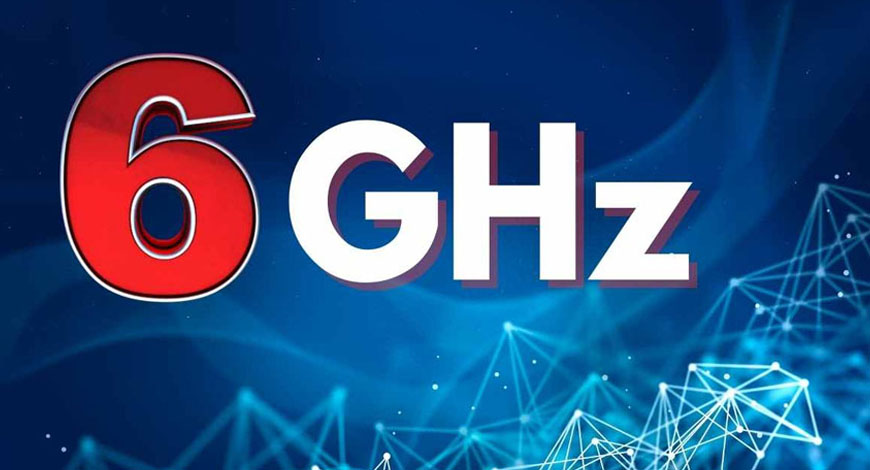Headlines of the Day
RJio reiterates 6GHz not be delicensed and be available only to telcos

Reliance Jio in the counter comments invited by TRAI to its consultation paper, “Digital transformation through 5G ecosystem” has responded:
“On Assignment of Spectrum in E&V Bands, and Spectrum for Microwave Access (MWA) & Microwave Backbone (MWB). The 5G deployment and 6G developments in India are at a nascent stage and the international assessments including that by GSMA indicate that for a ubiquitous 5G and 6G coverage at least 2 GHz mid-band spectrum per TSP is required. As 6 GHz band is the only mid-band spectrum available for IMT services, full 6 GHz (1200 MHz i.e. 5925-7125 MHz) band should be earmarked for IMT so that around 300 MHz to 400 MHz is available to each of the TSP for growth of 5G and introduction of 6G services.
Further, we reiterate our clear and unambiguous position that any spectrum assignment for commercial use should be through auction only, as this is the only legally tenable and technologically feasible mode of spectrum assignment. Further the use this band neither satisfy criteria prescribed for administrative allocation in the Telecommunications Act 2023, which has been notified pending fixation of appointed date nor there is any provision for license exempt use in the said Act.
As also noted in our previous submissions, all demands for license-exempt use of any spectrum band are really about getting the access to spectrum without going through licensing process and without paying the market price of the spectrum and should be rejected at the outset. All of these proposals are without any technical justifications, or any independent and irrefutable demand studies conducted on the requirement of such license-exempt spectrum, nor is any analysis provided on potential loss to exchequer from such de-licensing on short term and long-term basis nor the long- term impact of license exempt use on the competition in the market and on already sunk investments in the sector is provided. We submit that all these are valid consideration before any proposal for license exempt use is considered seriously by the Authorities.
We further submit that licensed-exempt use/delicensing of spectrum only leads to indiscriminate and irresponsible wide scale use with massive interference impact in case the same bands are also made available for licensed services.
It is not out of place to mention here that due to technological advancements; the same broadband services (internet access services) can be provided through Wi-Fi technology or 5G NRU (New Radio Unlicensed) network built over delicensed spectrum. Therefore, delicensing of spectrum not only create a cost arbitrage between the operator providing services on licensed spectrum and other operators but will also leads to huge loss to exchequer. It is submitted that pending fixation of appointed date notified new Telecommunications Act 2023 does not prescribe criteria for delicensing and therefore, not legally tenable.
It is also reiterated that delicensing is an irreversible process and always leads to indiscriminate and inefficient use and is normally done in spectrum band which are not suitable for the IMT technologies for example 5 GHz band in which around 750 MHz is delicensed. However, 6 GHz band (1200 MHz) is critically required for the growth of 5G and introduction of 6G in the country. Pertinently, the countries which have delicensed entire 6 GHz band for Wi-Fi services are now facing difficulty to reverse their decision when a large part of the band (i.e. 6.425 GHz to 7.025 GHz) is being considered for IMT in WRC-23.
Notwithstanding the above, it may be noted that over 800 MHz of spectrum already delicensed is not fully utilized anywhere and therefore the demand for additional delicensing need to be considered keeping in view availability of this huge chunk of unutilized spectrum.
We reiterate that the demands to delicense V band and 6 GHz for use in public Wi-Fi networks are not justified, as public Wi-Fi, even without full mobility and only hotspot coverage will be directly competing with 5G and would be a substitutable broadband service and thus should only be provided through licensed spectrum only following principle of “Same Service Same Rule”. Further, as mentioned before, wide, and indiscriminate adoption of delicensed spectrum will cause serious interference issues thus rendering these bands technically unusable for IMT services.”
In its comments earlier too, the telco had unambiguously stated, “The most critical part is the availability and allocation of spectrum. Dense 5G implementation will require massive amount of spectrum. In addition to all the already auctioned spectrum bands and plans to auction E-Band and V-Band spectrum, the Authority should also plan to auction 6 GHz band, full C-Band and 28 GHz band (on flexible use basis). We submit that all IMT identified and IMT targeted spectrum should be made available to TSPs. Further all available spectrum should be auctioned on regular basis. This should be supplemented by a clear policy position against delicensing of spectrum to quell the regular noise.”
The telco had also urged the Authority to continue with its policy of light touch regulation and continued monitoring developments to ensure that any market failure is averted. “We believe that it will be premature to go for more regulations and controls, especially when 5G ecosystem and its use cases in various industries; Metaverse and its applications etc. are still evolving and need all the freedom to innovate and deliver beneficial outcomes. It is worthwhile to mention here that even globally the approach has been to support for growth and observe new developments.
One aspect where regulatory simplification is required is IoT or Machine to Machine (M2M) communications. These services are already being used extensively in some sectors however, this specialized communication is overburdened with restrictive regulatory requirements and there is a need to create a collaborative regulatory regime for this, post addressing the concerns of stakeholders,” the telco had written.
CT Bureau














You must be logged in to post a comment Login